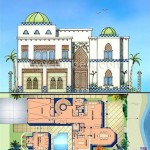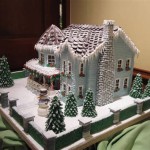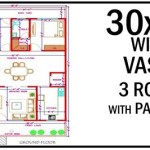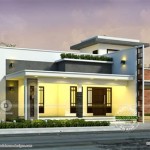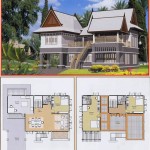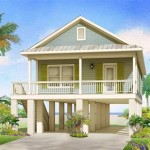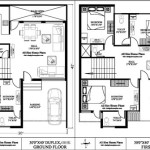Choosing the right home is a significant decision, and for those seeking to establish roots in Louisiana's vibrant capital, understanding the nuances of "Home Plans Baton Rouge" is paramount. This article provides an overview of the factors to consider when selecting a home plan in Baton Rouge, exploring design styles, regulatory considerations, and available resources.
Home Plans Baton Rouge: A Guide to Finding Your Perfect Home
Baton Rouge, steeped in history and culture, offers a diverse range of architectural styles and housing options. From the historic charm of the Garden District to the modern developments in suburban areas, finding a home plan that aligns with one's aesthetic preferences and practical needs requires careful consideration. The local climate, building codes, and community characteristics all play a role in determining the suitability of a particular home plan. Understanding these factors is crucial for a successful home-building or purchasing experience in Baton Rouge.
The initial step in navigating the landscape of "Home Plans Baton Rouge" involves identifying one's lifestyle requirements. Considerations such as family size, work-from-home needs, entertaining habits, and desired outdoor space will influence the size, layout, and features of the ideal home. A detailed needs assessment will help narrow down the options and guide the search process.
Architectural Styles and Their Suitability for Baton Rouge
Baton Rouge boasts a rich architectural heritage, with influences from French, Spanish, and American traditions. Several architectural styles are particularly well-suited to the region's climate and aesthetic landscape. These include:
1. Acadian Style: Characterized by steeply pitched roofs, dormer windows, and large front porches, Acadian-style homes are a staple in Louisiana. The raised foundations offer protection from flooding, while the expansive porches provide shaded outdoor space, ideal for the region's warm climate. These homes often feature open floor plans and natural materials, such as wood and brick.
2. Creole Style: Similar to Acadian style, Creole homes often feature galleries or balconies, high ceilings, and large windows to maximize ventilation. They frequently incorporate elements of both French and Spanish architecture, reflecting the city's diverse cultural history. Courtyards are a common feature, providing private outdoor spaces.
3. Craftsman Style: With its emphasis on handcrafted details and natural materials, the Craftsman style offers a blend of rustic charm and modern functionality. These homes typically feature exposed rafters, wide eaves, and prominent porches. The use of wood, stone, and brick creates a warm and inviting aesthetic. While originally emerging in the early 20th century, the Craftsman style remains relevant and adaptable to modern living.
4. Modern Style: Modern architecture in Baton Rouge incorporates clean lines, large windows, and open floor plans. These homes often feature sustainable materials and energy-efficient designs. Modern designs can be tailored to complement the surrounding landscape while offering contemporary amenities and aesthetics.
When selecting an architectural style, it is important to consider the existing neighborhood context and local zoning regulations. Some communities may have restrictions on architectural styles to preserve the overall character of the area.
Navigating Building Codes and Regulations in Baton Rouge
Building codes and regulations are crucial aspects of home construction and renovation in Baton Rouge. These codes are designed to ensure the safety, structural integrity, and energy efficiency of buildings. The City of Baton Rouge and East Baton Rouge Parish have specific requirements that must be met before construction can begin.
1. Building Permits: Obtaining the necessary building permits is a critical step in the construction process. Permits are required for various types of work, including new construction, renovations, additions, and certain types of repairs. The permit application process typically involves submitting detailed plans and specifications to the local building department for review.
2. Zoning Regulations: Zoning regulations dictate how land can be used and developed within different areas of the city. These regulations specify requirements for lot size, setbacks, building height, and allowable uses. Understanding zoning regulations is essential to ensure that the desired home plan complies with local ordinances.
3. Flood Zones: Baton Rouge is located in an area that is susceptible to flooding. As a result, flood zone regulations play a significant role in home construction. Homes located in flood zones may be required to meet specific elevation requirements and adhere to strict construction standards to mitigate flood damage.
4. Energy Efficiency Codes: Louisiana has adopted energy efficiency codes to promote the use of energy-saving technologies and practices in home construction. These codes establish minimum standards for insulation, windows, HVAC systems, and other building components. Compliance with energy efficiency codes can help reduce energy consumption and lower utility bills.
It is highly recommended to consult with a qualified architect, engineer, or contractor who is familiar with the local building codes and regulations. They can provide guidance on navigating the permitting process and ensuring compliance with all applicable requirements.
Resources for Finding Home Plans in Baton Rouge
Several resources are available to help individuals find suitable home plans in Baton Rouge. These resources range from online databases to local architectural firms. Utilizing a combination of these resources can streamline the search process and help identify the perfect home plan.
1. Online Home Plan Databases: Numerous websites offer a wide selection of pre-drawn home plans. These databases allow users to search for plans based on various criteria, such as square footage, number of bedrooms, architectural style, and price range. While these plans can provide a starting point, it is important to ensure that they comply with local building codes and zoning regulations.
2. Local Architectural Firms: Engaging a local architectural firm can provide a customized solution tailored to specific needs and preferences. Architects can create unique home designs that consider the local climate, site conditions, and individual lifestyle. They can also assist with navigating the permitting process and ensuring compliance with building codes.
3. Home Builders and Contractors: Many home builders and contractors offer design-build services, where they handle both the design and construction aspects of a project. These companies often have a portfolio of pre-designed home plans that can be customized to meet individual requirements. They can also provide guidance on site selection, budgeting, and construction management.
4. Real Estate Professionals: Real estate agents specializing in new construction can provide valuable insights into the local housing market and available home plans. They can help identify potential building sites and connect buyers with reputable builders and architects.
5. Home Shows and Expos: Attending local home shows and expos can provide an opportunity to meet with builders, architects, and suppliers, and to learn about the latest trends in home design and construction. These events often feature displays of model homes and offer educational seminars on various topics related to home building.
It is advisable to thoroughly research and vet any professional before engaging their services. Checking references, reviewing portfolios, and obtaining multiple bids can help ensure a successful and satisfying home-building experience.
Beyond the core architectural, regulatory, and resource related aspects, the consideration of long-term maintainability is crucial. Material selection should focus on durability against Baton Rouge's humid climate and potential storm impacts. Understanding the implications of specific design choices on future maintenance costs is a worthwhile investment of time during the planning phase. This contributes to the overall long-term satisfaction and value of the home.
Energy efficiency is another crucial consideration that extends beyond merely meeting code requirements. Exploring options such as solar panel integration, advanced insulation techniques, and high-performance windows can significantly reduce long-term energy costs and contribute to environmental sustainability. The initial investment in these technologies often yields substantial returns over the lifespan of the home.
Finally, community integration should be a key factor in the selection process. Considering the proximity to schools, parks, shopping centers, and other amenities is essential for ensuring a comfortable and convenient lifestyle. Understanding the local community's character and social dynamics can enhance the overall quality of life and create a sense of belonging.

Traditional Luxury Style House Plan 6900 Baton Rouge

Traditional Luxury Style House Plan 6900 Baton Rouge

The Baton Rouge Madden Home Design Louisiana Style House Plans Farmhouse Floor

The Baton Rouge Madden Home Design Louisiana Style

The Fleur New Home From Level Homes

Louisiana Floor Plans Madden Home Design

New Homes In Louisiana Level

Baton Rouge 5612 3 Bedrooms And 2 Baths The House Designers

Madden Home Design House Plans
Deliver Smaller Floor Plans That Live Large Builder

